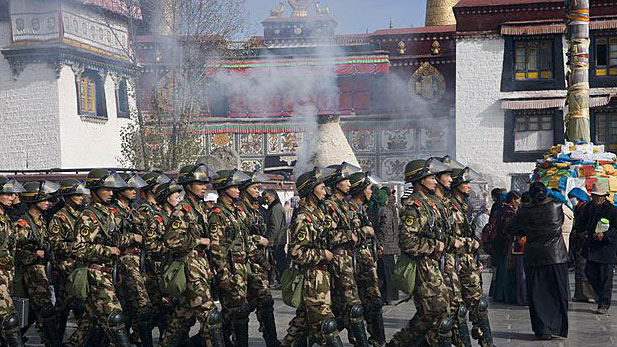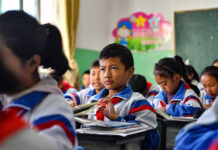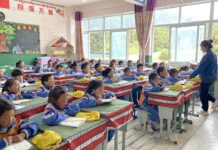
(TibetanReview.net, Sep01, 2018) – Not impressed by China’s patently false and tall claims about its treatment of Tibetans, Uyghurs and Mongols while responding to questions on its report on the implementation of the United Nations convention on the elimination of racial discrimination, concerned experts in Geneva of the world body have called on Beijing to review its policies and laws in their concluding observation delivered on Aug 30.
In its hearing last month on China’s report, the UN Committee on the Elimination of Racial Discrimination had raised a number of pointed questions based on its examination of reports submitted by Beijing as well as by accredited NGO’s and on its own analysis. Apart from painting a glossy picture of the situation of Tibetans, Uyghurs and Mongols, China had questioned the experts’ questions themselves while casting unfounded aspersion on the NGO’s that had presented their critiques on China’s deplorable record on its treatment of these ethnic minority groups.
The committee has now issued a number of recommendations while highlighting torture and ill-treatment of ethnic groups, the use of anti-terror and anti-separatism laws to stifle dissent and the diminishing space for civil society in China. The committee has also issued detailed recommendations with regard to the human rights of Mongols, Tibetans and Uyghurs.
With regard to Tibet, the committee has said it was “concerned by reports that Tibetans are subjected to significant restrictions on movement within and beyond Tibet Autonomous Region, and that the issuance of passports for foreign travel is almost entirely banned in the region. It is also concerned by reports that Tibetan language teaching in schools in the Tibet Autonomous Region has not been placed on equal footing in law, policy and practice with Chinese, and that it has been significantly restricted; that Tibetan language advocacy has been punished; and that Tibetans do not have access to Tibetan language translations during court proceedings, which are held in Mandarin.”
The committee has recommended that China “preserve the Tibetan language” by “encouraging and promoting its use in the fields of education, the judicial system and the media”.
The committee has also expressed concern on resettlement policies that adversely affect Tibetans.
The committee has also recommended that China “strengthen measures to prevent acts of torture and ill-treatment committed against members of ethnic minorities.” This effectively dismisses China’s claims that reports of those acts being committed were “false”, noted Washington-based International Campaign for Tibet (ICT) Aug 30.
The committee has also expressed concern “that the broad definition of terrorism and vague references to extremism and unclear definition of separatism in Chinese legislation could have the potential to criminalize peaceful civic and religious expression and facilitate criminal profiling of ethnic and ethno-religious minorities, including Muslim Uighurs and Buddhist Tibetans and Mongolians.”
ICT noted that during the review session, China had flatly denied the existence of any policy of systematic discrimination against Tibetans and Uyghurs. The Chinese officials’ lies during the hearing were stated to have prompted one committee member to ask sarcastically whether the delegation “has not come here all the way from China to tell us everything is okay.”
The committee has also called on China to release all Uyghurs and other ethnic minorities currently held in extra-legal political re-education camps in Xinjiang. The committee had earlier taken note of the fact that around a million Uyghurs were under such detention, that China had “turned the Uyghur autonomous region into something that resembles a massive internment camp”. Expressing alarm, the committee has now called for the release of those held on a counter terrorism “pretext”, noted a bbc.com report Aug 31.





